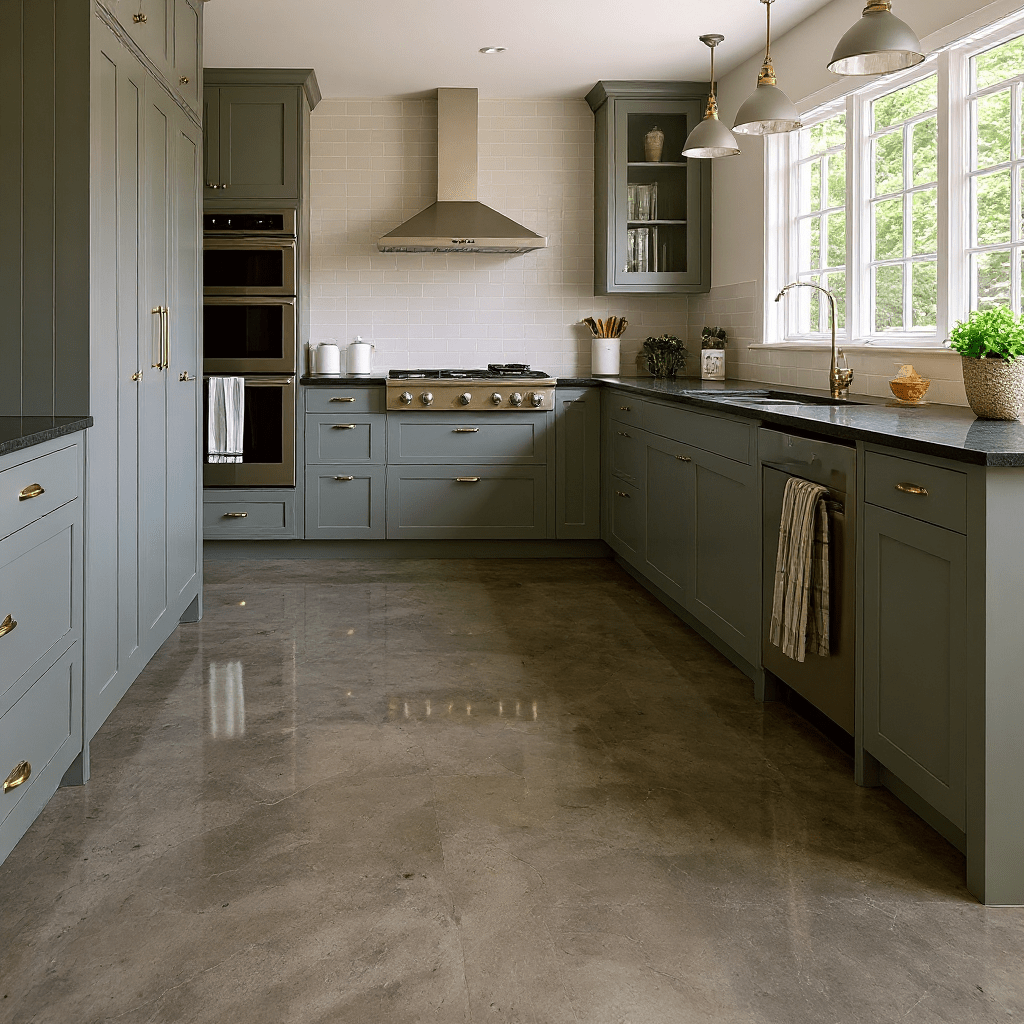
Water-Based Acrylics or Coatings? Choosing the Best Sealer for Your Interior Stained Concrete Floors
Selecting the ideal sealer for your interior stained concrete floors can greatly enhance both their appearance and longevity. With options ranging from water-based acrylic sealers to durable coatings, understanding how each type impacts your flooring is crucial. The right sealer will protect your investment and ensure a stunning finish that complements your home's style. Prepare to explore the benefits of various sealer types and identify the best solution for your unique space. Whether you're a DIY enthusiast or a contractor, this guide will navigate what you need to know about stained concrete sealers.
Understanding Acrylic Sealers and Coatings
Concrete sealers are protective coatings applied to concrete surfaces after staining, serving multiple purposes such as enhancing color, increasing durability, and protecting against stains and moisture.
Acrylic sealers are a topical option that is easy to apply and typically offers a low to mid-level gloss. Coatings are two-part components that require more expertise to apply, generally provide a high gloss, and are more durable than acrylic sealers.
Concrete Resurrection suggests considering factors such as traffic levels, exposure to chemicals, and desired finish when choosing a sealer.
Best Sealers for Concrete Floors
The most suitable sealers for concrete floors depend on your specific needs and the environment of your space. Water-based acrylic sealers are popular for interior use due to their ease of application and low odor.
For high-traffic areas or spaces exposed to chemicals, epoxy or the high gloss water-based urethane might be more appropriate. These provide excellent durability and resistance to wear and tear.
Consider the following factors when selecting a sealer:
-
Desired level of gloss
-
Ease of maintenance
-
Chemical resistance
-
UV stability (for areas with sunlight exposure)
Comparing Sealer Types
Benefits of Water-Based Acrylic Sealers
Water-based acrylic sealers offer several benefits for interior stained concrete floors. They are easy to apply and provide a clear, protective finish that enhances the color of the stain.
These sealers dry quickly and have low VOC emissions, making them ideal for indoor use. They also allow the concrete to breathe, reducing the risk of moisture buildup.
Floor Finish is a great addition to Inside Acrylic. Learn more here.
Water-based acrylic sealers are cost-effective and can be easily reapplied, making them a popular choice for homeowners and contractors alike.
Coatings for Concrete Floors Explained
Coatings, such as epoxy and high gloss water-based urethane, offer a more durable solution for concrete floors. They create a robust protective layer that can withstand heavy foot traffic and resist chemicals. They are two-part components, so you have a limited time to apply them, which can make the application a bit more complex.
Epoxy coatings provide excellent adhesion and have additives for various colors and finishes. They're ideal for garage floors or commercial spaces. They are not UV resistant, can be applied at a thicker build, and can sometimes require two coats due to outgassing issues.
High Gloss Water-Based Urethane offers superior scratch and UV resistance, has a high gloss finish, and resists hot tire pickup. Perfect for residential settings seeking low maintenance, garages, or commercial establishments.
Tips for Concrete Floor Care
Enhancing Concrete Appearance
To enhance the appearance of your concrete floors, start with proper cleaning. Regular sweeping and occasional mopping with special cleaners for stained concrete, like those found here, will keep your floors looking their best.
Consider applying a fresh coat of sealer every few years to maintain the floor's luster and protection. This is especially important in high-traffic areas. If you have Inside Floor Finish installed, you will only need to apply floor finish in the areas showing some wear.
For added visual interest, you can use decorative techniques such as scoring patterns before sealing.
Concrete Floor Maintenance Essentials
Maintaining your sealed concrete floors involves a few key practices:
-
Clean spills promptly to prevent staining.
-
Use furniture pads to prevent scratches.
-
Avoid dragging heavy objects across the floor.
-
Reapply sealer/floor finish as recommended by the manufacturer.
Regular inspections can help you identify and address any issues early, prolonging the life of your concrete floors.
For stubborn stains or damage, consult a professional concrete restoration service to ensure proper treatment without compromising the sealer.


